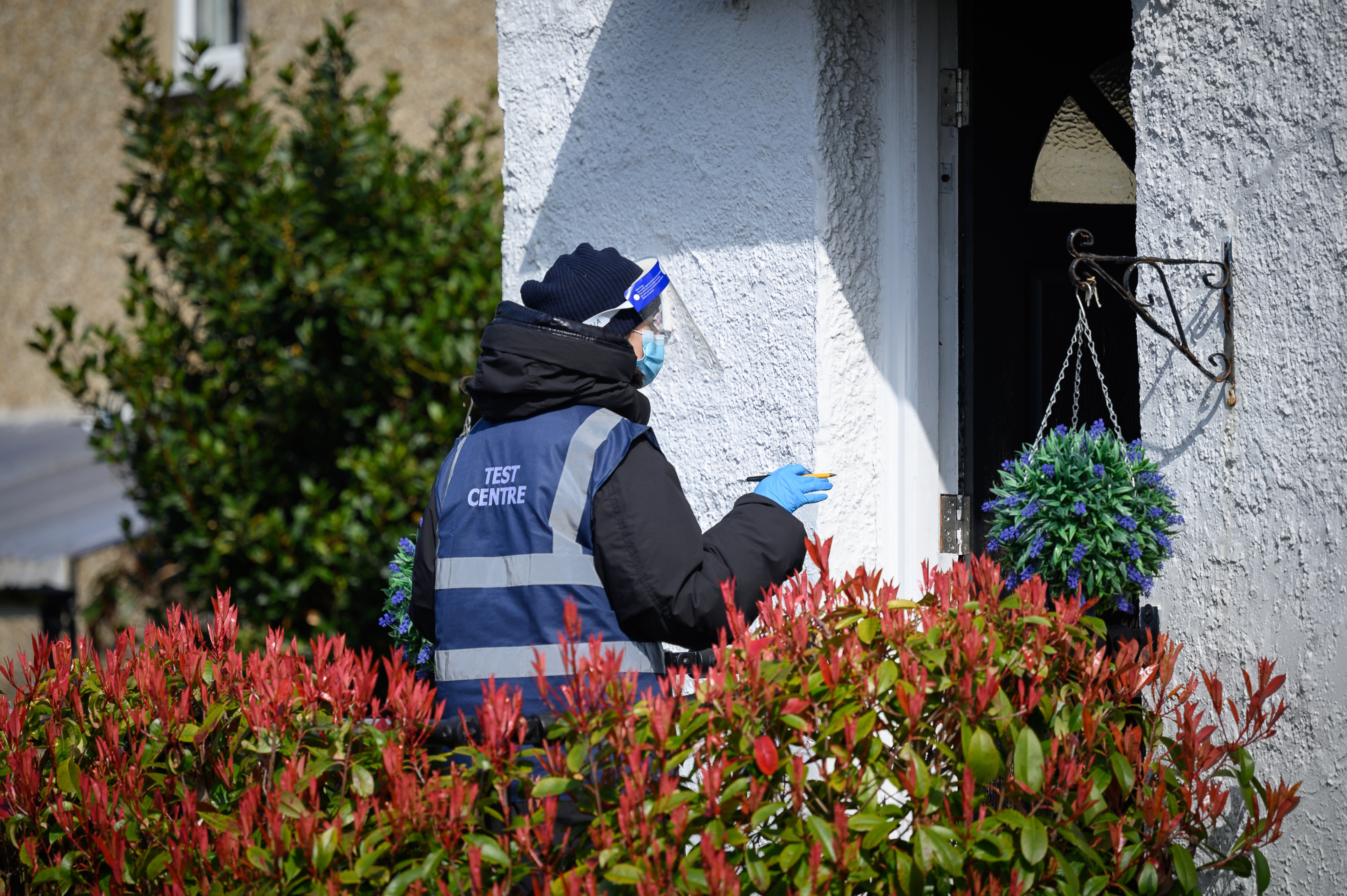Three in 20 self-isolating adults who tested positive for Covid broke rules
Almost all of those who broke rules did so by leaving home

Your support helps us to tell the story
From reproductive rights to climate change to Big Tech, The Independent is on the ground when the story is developing. Whether it's investigating the financials of Elon Musk's pro-Trump PAC or producing our latest documentary, 'The A Word', which shines a light on the American women fighting for reproductive rights, we know how important it is to parse out the facts from the messaging.
At such a critical moment in US history, we need reporters on the ground. Your donation allows us to keep sending journalists to speak to both sides of the story.
The Independent is trusted by Americans across the entire political spectrum. And unlike many other quality news outlets, we choose not to lock Americans out of our reporting and analysis with paywalls. We believe quality journalism should be available to everyone, paid for by those who can afford it.
Your support makes all the difference.About three in 20 adults in England who tested positive for Covid-19 while self-isolating broke the law by leaving home or having visitors, figures suggest.
Some 14 per cent said they had carried out at least one activity that did not adhere to the rules during their self-isolation period, the Office for National Statistics (ONS) said.
More than four in five (83 per cent) of that cohort said they had left home for a reason not permitted, such as going to the shops, work or school.
And about one in five (22 per cent) said they had at least one visitor to their home during the 10-day self-isolation period, where the visit was not to support personal care.
Non-adherence with self-isolation requirements is illegal, unless there are exceptional circumstances such as emergency medical reasons.
Read more:
ONS analysis found non-compliant behaviour was most likely to take place between the onset of symptoms and getting a test result.
Half of respondents received their test result within 24 hours and 10 per cent waited more than 72 hours, it said.
Some 98 per cent reported following the rules in the 24 hours after a positive test and 94 per cent between this point and the end of the self-isolation period.
More than one in three adults found self-isolating had a negative effect on their wellbeing and mental health.
Over a third (37 per cent) said self-isolation had a negative impact, while 58 per cent reported no effect.
Around a third (32 per cent) reported a loss of income, and 13 per cent of those who had been working prior to self-isolating – either in or outside their home – said they were not paid during the self-isolation period.
Overall, 86 per cent of respondents reported fully adhering to self-isolation requirements, according to the data collected from 1 to 13 February.
Tim Gibbs, from the ONS public services analysis team, said: “Although it’s a legal duty, self-isolation does disrupt day-to-day life and we can see that there are key side effects of self-isolation such as worsening mental health and loss of income.
“Despite this, our analysis shows that a majority of people report fully adhering to the rules throughout their self-isolation period.”
Among adults who had to self-isolate after being in contact with someone who had tested positive for coronavirus, around a third (32 per cent) said self-isolation had a negative effect on their wellbeing and mental health, while 28 per cent said they had lost income.
A majority (90 per cent) of those required to self-isolate after coming into contact with a positive case said they had followed self-isolation rules for the entire 10-day period.
Of those who said they had not followed the rules, a third (33 per cent) had allowed at least one visitor into their homes while 22 per cent said they had left home for a medical reason other than getting or returning a Covid-19 test.
These figures, which have also been compiled by the ONS, are based on responses collected from adults in England from 1 to 6 March.
Additional reporting by Press Association
Join our commenting forum
Join thought-provoking conversations, follow other Independent readers and see their replies
Comments